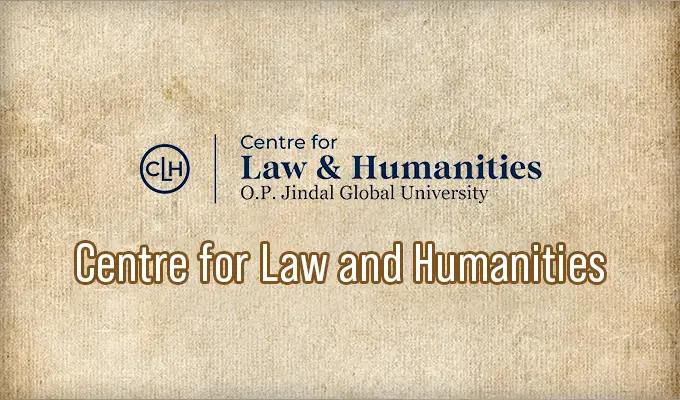
 The importance of developing and reflecting on humanistic perspectives on legal practice and legal pedagogy has acquired a specific kind of urgency in contemporary iterations of legal questions in India today. It has become imperative to recover, highlight, and underline the quest of law towards humanity to interrogate the normalization of law’s attachment to cruelty. The Centre for Law and Humanities aims to consolidate the prolific histories, traditions, and forms of life and thought that challenges the idea that law as language must serve as hollow instrument of power. By pointing to the relationship between law and/or in humanities, it strives to recover a sensibility that is literary, lyrical, poetic, sensory, and aesthetic to invite self-reflexivity at the heart of the legal enterprise. To the project of constitutional law or human rights law, the very idea of the human (or the post-human) and humanity must take centre stage. And such projects then must cultivate forms of sensibilities that enable legal experts, academics and students to see and feel (or sense) how lives that stand or fall in the shadow of the law are made illegible. Such forms of seeing and sensing are framed through artistic, cinematic, poetic, literary or sensory ways. The symbolic forms of law or the structure of feelings that are embedded in legal architecture as a given must be unpacked from a postcolonial reading of our own literary, cinematic, poetic, artistic and sensory traditions.
The importance of developing and reflecting on humanistic perspectives on legal practice and legal pedagogy has acquired a specific kind of urgency in contemporary iterations of legal questions in India today. It has become imperative to recover, highlight, and underline the quest of law towards humanity to interrogate the normalization of law’s attachment to cruelty. The Centre for Law and Humanities aims to consolidate the prolific histories, traditions, and forms of life and thought that challenges the idea that law as language must serve as hollow instrument of power. By pointing to the relationship between law and/or in humanities, it strives to recover a sensibility that is literary, lyrical, poetic, sensory, and aesthetic to invite self-reflexivity at the heart of the legal enterprise. To the project of constitutional law or human rights law, the very idea of the human (or the post-human) and humanity must take centre stage. And such projects then must cultivate forms of sensibilities that enable legal experts, academics and students to see and feel (or sense) how lives that stand or fall in the shadow of the law are made illegible. Such forms of seeing and sensing are framed through artistic, cinematic, poetic, literary or sensory ways. The symbolic forms of law or the structure of feelings that are embedded in legal architecture as a given must be unpacked from a postcolonial reading of our own literary, cinematic, poetic, artistic and sensory traditions.
The Centre for Law and Humanities strives to promote reflections on the intersections between law and the humanities by initiating interdisciplinary conversations on how we may think of law in humanities, law and humanities, and law as humanities. The Centre provides a forum to scholars from diverse intellectual traditions and disciplinary perspectives to converse and dialogue on how to deepen laws quest for humanity. The Centre seeks to elicit newer ways of framing law’s vexed relationship with caste, gender, politics, identity, morality, art and justice. It strives to invite conversations about the cultural lives of law by addressing both state law and non-state law. Towards this goal, the Centre regularly organises individual and collaborative research projects, conferences and scholarly symposia, public and distinguished lectures and exhibitions.
Some of the other specific objectives of the Centre include:
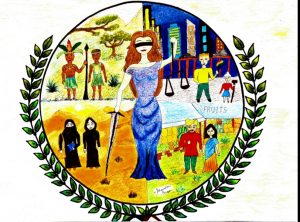
Dhanishtha Arora, BA LLB (2021-2026), JGLS
This piece is drawn keeping in mind that all people, irrespective of their different nationalities, class, gender, religion, economic status, age, disabilities/special abilities, choices of clothing, etc. should be granted a similar set of privileges, giving respect to the diversity and at the same time creating an inclusive international society that respects the most intrinsic and core human values.

Reema Nayak, BBA LLB (2021-2026), JGLS
I have drawn several symbols to denote the various fields of humanities (anthropology, law, politics, archaeology, history, literature, linguistic and language, performing arts, visual arts, philosophy, gender) resting upon the international symbol of justice, perfectly balanced, representing how co-dependent law and humanities are on each other, and how the disregard of one would make the other imbalanced.

Maria Philip Mampilly, BA LLB (2022-2027), JGLS
The artwork shows that absolute justice is abstract and imaginary, it shows that justice an unachievable faraway dream for the oppressed and poor ( depicted in green) and justice tilts towards money, power, and authority ( depicted in red) and how recklessly the powerful and the rich are holding it and playing with it.
2024
2023
2022
2021
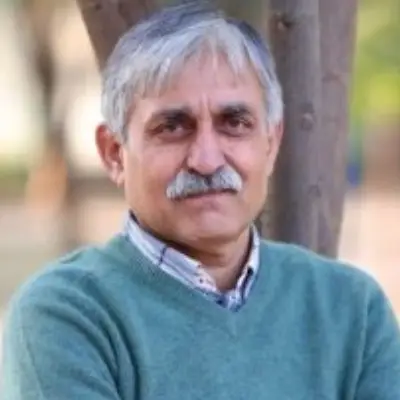
Mani Shekhar Singh
Director
Mani Shekhar Singh is Professor and the Executive Director of the Centre for Law and Humanities at Jindal Global Law School. He has worked extensively on the pictorial practices of women painters of Mithila (India), which resulted in Ph.D. from the Department of Sociology, Delhi School of Economics, University of Delhi. He has held visiting fellowships at top universities and research institutes in Germany, France and the United States of America. In India, he has been the recipient of the New India Foundation Fellowship and the Indira Gandhi National Centre for the Arts research grant. He has taught at New School for Social Research, New York, and Department of Sociology, University of Delhi. He has published in several edited volumes and journals including Contributions to Indian Sociology (ns), Indian Folklife, Indian Horizons, Economic and Political Weekly, and Domains. His areas of research interest include visual anthropology, folk creative expressions, and law and art. Prof. Singh is currently researching the place of art in the Indian Constitution, online courts, and legal aesthetics in India.
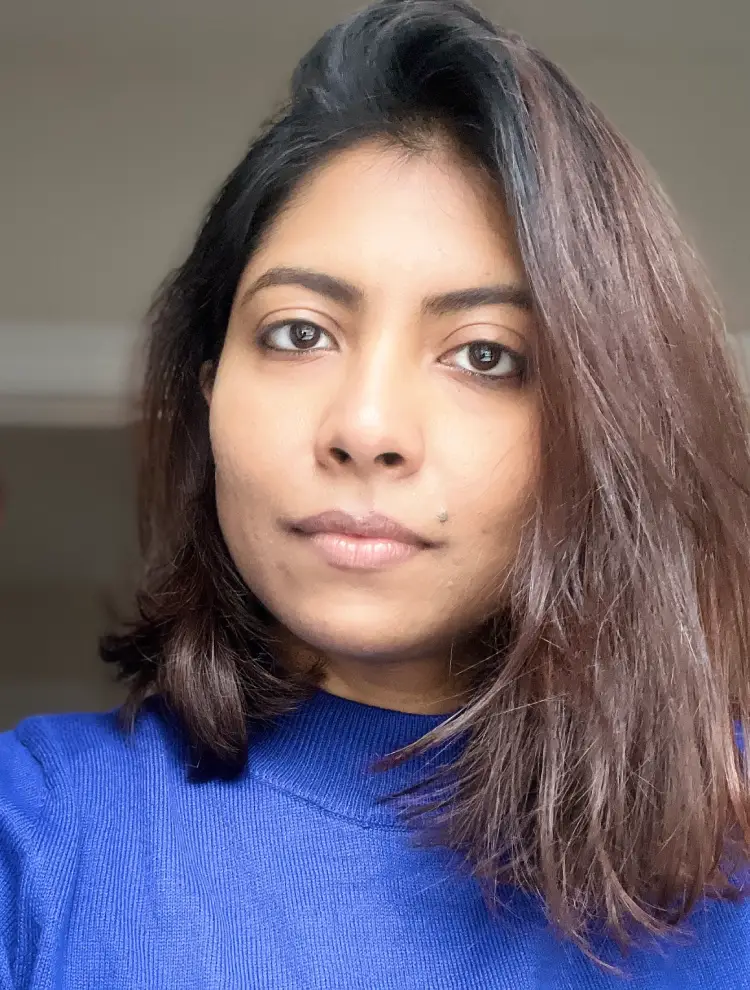
Deblina Dey
Assistant Director
Deblina Dey is Associate Professor of Sociology at Jindal Global Law School. She has received her doctoral degree from the Centre for the Study of Law and Governance, Jawaharlal Nehru University, New Delhi. She pursues interdisciplinary research on care, law and inequality with a focus on older people in India. In 2022, Dr. Dey was awarded the NC Choudhury Young Scholar Award in Social Anthropology and Sociology by the Indian Anthropological Society for her research contribution and publications. She was also awarded the Hunt Postdoctoral Fellowship by the Wenner-Gren Foundation for Anthropological Research, New York, in 2023 and the Fulbright-Nehru Postdoctoral Fellowship (Chicago, USA) in 2024 to pursue her work on models of eldercare. She has published on topics such as dispute resolution forums for older people, custodial neglect of older political prisoners, religion and elder abuse, and filial piety laws in India and China. Her research interests/areas of work include sociology of law, critical gerontology, medical anthropology (pharmaceuticalisation of care, medical harm, end-of-life care), custodial institutions (prisons and care institutions), kinship studies, sociology of the market, technology and contemporary social movements. Some of her publications can be viewed at: https://jgu.academia.edu/DeblinaDey. Dr. Dey will be launching Care & Ageing in Asia Research Network [CAARNet] in September 2025, a platform that will bring together various stakeholders, scholars and those working in the domain of eldercare more broadly, to discuss (elder)care practices and ageing futures.

Soumya Singh Chauhan
Fellow
Soumya is an Assistant Professor at the Jindal Global Law School. Soumya has earned her Masters in Law in ‘Intellectual Property and Policy Law’ from University of Washington School of Law, Seattle, and her B.A.LL.B. [Hons.] from University Institute of Legal Studies, Panjab University. Her work experience includes Trademark Prosecution and Transactions at Ascentialls Law Firm in New Delhi, Policy work relating to surveillance technology at the American Civil Liberties Union of Washington, and Art and Law intersecting practices at the Seattle Art Museum and Tasveer, a non-profit South Asian film organisation that organises the longest South Asian Film Festival in the USA. Soumya’s current research interests lie in these intersections as well, of Technology and Law, and Art and Law, involving the study of IP, Criminal Law, and Constitutional Law.
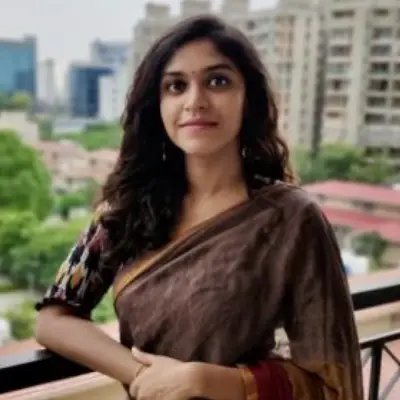
Hamsini Marada
Fellow
Hamsini is broadly oriented towards socio-legal studies with an emphasis on comparative constitutional law, aesthetics, and criminal law. In this realm, she is particularly interested in the intersection of art, law, culture and politics. As someone who is passionate about painting and photography, her current work pertains to the protection of rights of artists and their artworks. Through her research, she is also working on developing creative strategies to increase access to law through art in India and South Asia by works of art in the nature of street art, graffiti writing, protest art and artworks in digital spaces. Hamsini also teaches an elective titled Sounds and Silences of Law in Art: Identity, Access and Activism. She is currently engaged in developing an art portfolio intended to be a compilation of personal projects and other work interests.

Tripti Bhushan
Fellow
Tripti Bhushan is currently serving as an Assistant Professor at Jindal Global Law School and is a Fellow at the Centre for Law and Humanities (CLH). She holds an LLM in Intellectual Property Rights from Hidayatullah National Law University and a B.A.LLB (H) from Amity Law School, Lucknow. In recognition of her outstanding research and publications, she was awarded the Research Excellence Award by O.P Jindal Global University in 2021. Additionally, Tripti received the International Award as an Emerging Scientist in the field of law in 2020 for her exceptional contributions to academia. Prior to her current role, she worked as an Assistant Professor at Kalinga University, Raipur. Tripti has numerous SCOPUS Publications in esteemed journals such as Economic and Political Weekly, International Journal of Public Policy & Law, American Journal of Political Science and Criminology, NTUT Journal of Intellectual Property Law and Management, and Oxford Human Rights Hub. Furthermore, she has authored two books with ISBN numbers on Intellectual Property Law & Media and International Law in 2021. Her research interests encompass Fashion Law, Intellectual Property Rights, Cyber law & Technology, Entertainment and Media laws.
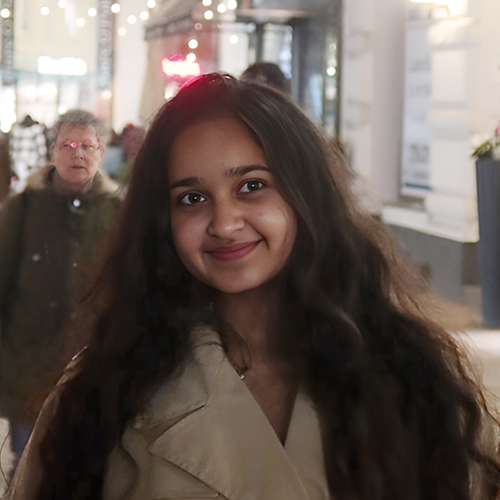
Heysha Zaveri
Research Assistant
Heysha Vikas Zaveri is currently an undergraduate law student pursuing an integrated BBA LLB Degree at the Jindal Global Law School. She believes that societal issues, such as those affecting marginalized communities, are omnipresent, and the center recognizes them in a society that often considers these issues invisible. Her current areas of interest include, among others, reading about the disturbances to refugees, environmental law, humanitarian law, and the intersection of these topics today.
We welcome collaborations and presentation of research work from persons and organisations with expertise in the field of Law and the Humanities. Please write to us at clh@jgu.edu.in if you are interested.